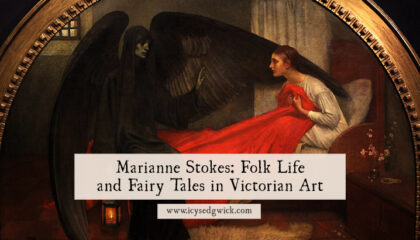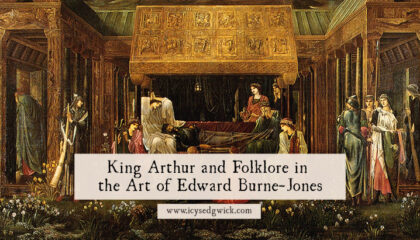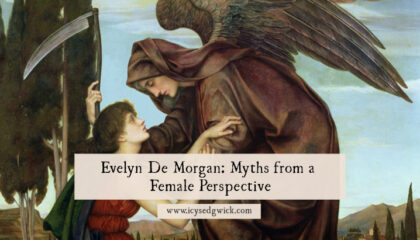We’ve been examining the links between folklore, mythology and art in the Victorian period over the last few posts. Yes, the Victorians have a lot to answer for more widely. Yet this was also a period in which mythology and folklore appeared a lot in art. Some artists used these myths to explore dangerous female […]
art history
King Arthur and Folklore in the Art of Edward Burne-Jones
Victorian artists often drew on myths, legends, and fairy tales to fuel their work. They made great subject matter for commissions, a fact exploited to great effect by John William Waterhouse. Yet these stories also allowed artists to comment on their age in pictorial terms. The rewriting of a myth, or the choice of a […]
Evelyn De Morgan: Myths from a Female Perspective
When you think of mythology in Victorian art, you probably think of the nude water nymphs of John William Waterhouse. As we saw last week, his work draws heavily from myth and legend for its subject matter. Yet he was nowhere near being the only artist inspired by classical stories. Evelyn De Morgan was another […]
Blending Folklore and Art in the work of John William Waterhouse
Whenever you go looking for artworks to illustrate articles about folklore and mythology, one name keeps popping up. That’s Victorian artist, John William Waterhouse. He used many myths and legends to inspire his work, including the literary varieties available via the Romantic poets. In this article, let’s explore the link between folklore and art within […]
The Lost Art of the Letter
On Monday night, I watched an item on BBC News about a new Van Gogh biography that attempts to explode the legend that the troubled artist committed suicide. The primary research materials have been the thousands of letters left by Van Gogh and it got me thinking. So many biographies rely on correspondence either written […]
Self Publishing Is Nothing New
No matter what blog you read, or tweet stream you follow, the Internet appears to be buzzing with various proclamations about the state of publishing, ranging from the so-called death of print (which, technically, Dr Egon Spengler predicted in Ghostbusters, way back in 1984) to the so-called ‘revolution’ of self-publishing. I’m not quite sure how to break it […]









